Intro
Learn about pregnancy high blood pressure risks, including preeclampsia, gestational hypertension, and eclampsia, to understand symptoms, causes, and management options for a healthy pregnancy.
Pregnancy is a life-changing experience that brings immense joy to expecting mothers. However, it also comes with its fair share of challenges and health risks. One of the most significant concerns for pregnant women is the risk of developing high blood pressure, also known as hypertension. This condition can have severe consequences for both the mother and the baby, making it essential to understand its causes, symptoms, and management strategies. As we delve into the world of pregnancy and high blood pressure, it is crucial to recognize the importance of prenatal care and the role it plays in preventing and managing this condition.
High blood pressure during pregnancy is a common complication that affects thousands of women worldwide. According to the American College of Obstetricians and Gynecologists (ACOG), hypertension is one of the leading causes of maternal and fetal morbidity and mortality. The condition can lead to severe complications, including preeclampsia, eclampsia, and placental abruption, which can be life-threatening for both the mother and the baby. Therefore, it is vital to understand the risks associated with high blood pressure during pregnancy and take necessary precautions to prevent and manage the condition.
The importance of addressing high blood pressure during pregnancy cannot be overstated. Expecting mothers who experience hypertension are at a higher risk of developing cardiovascular disease, kidney disease, and other health problems later in life. Moreover, high blood pressure can also affect the baby's health, leading to low birth weight, premature birth, and other complications. By understanding the causes and symptoms of high blood pressure, pregnant women can take proactive steps to manage their condition and ensure a healthy pregnancy.
Pregnancy High Blood Pressure Risks
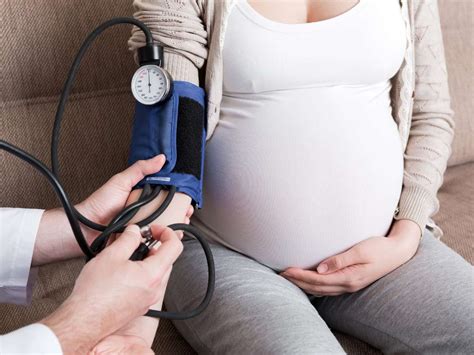
High blood pressure during pregnancy is a complex condition that can be caused by various factors. Some of the most common causes of hypertension in pregnant women include:
- Pre-existing hypertension: Women who have high blood pressure before becoming pregnant are at a higher risk of developing hypertension during pregnancy.
- Family history: A family history of hypertension can increase the risk of developing the condition during pregnancy.
- Obesity: Excess weight can increase the risk of developing high blood pressure during pregnancy.
- Age: Women over 35 years old are at a higher risk of developing hypertension during pregnancy.
- Multiple pregnancies: Women carrying twins or other multiples are at a higher risk of developing high blood pressure.
Causes of High Blood Pressure
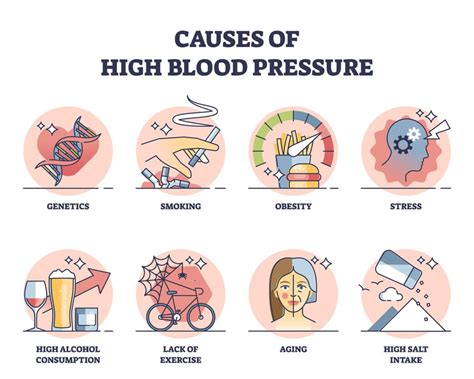
The symptoms of high blood pressure during pregnancy can be subtle, making it essential to monitor blood pressure regularly. Some of the common symptoms of hypertension in pregnant women include:
- Headaches
- Dizziness
- Nausea and vomiting
- Vision changes
- Abdominal pain
Symptoms of High Blood Pressure
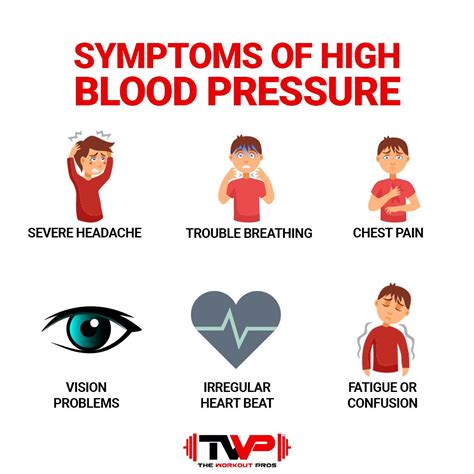
Managing high blood pressure during pregnancy requires a comprehensive approach that involves lifestyle changes, medication, and regular monitoring. Some of the ways to manage hypertension during pregnancy include:
- Maintaining a healthy weight
- Engaging in regular physical activity
- Eating a balanced diet
- Managing stress
- Getting enough sleep
Managing High Blood Pressure
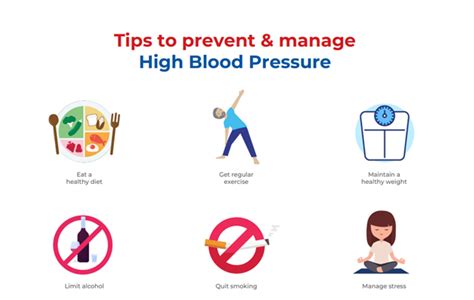
Prenatal care plays a vital role in preventing and managing high blood pressure during pregnancy. Regular check-ups with a healthcare provider can help identify hypertension early on, allowing for prompt treatment and management. Some of the ways prenatal care can help manage high blood pressure include:
- Regular blood pressure monitoring
- Urine tests to check for protein
- Blood tests to check for kidney function
- Fetal monitoring to check for signs of distress
Prenatal Care and High Blood Pressure
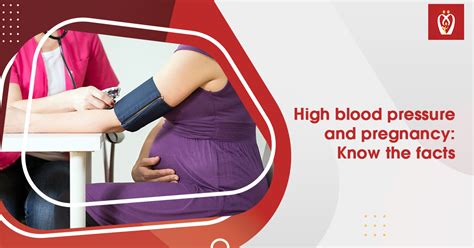
In addition to lifestyle changes and prenatal care, medication may be necessary to manage high blood pressure during pregnancy. Some of the medications used to treat hypertension in pregnant women include:
- Methyldopa
- Nifedipine
- Labetalol
- Hydralazine
Medications for High Blood Pressure
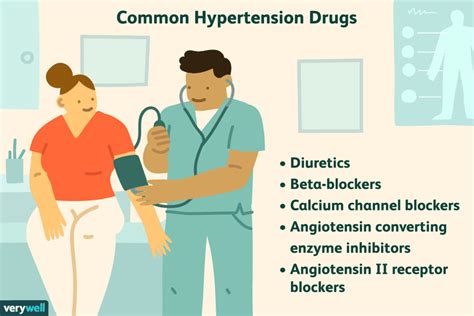
High blood pressure during pregnancy can have severe consequences for both the mother and the baby. Some of the potential complications of hypertension during pregnancy include:
- Preeclampsia
- Eclampsia
- Placental abruption
- Premature birth
- Low birth weight
Complications of High Blood Pressure
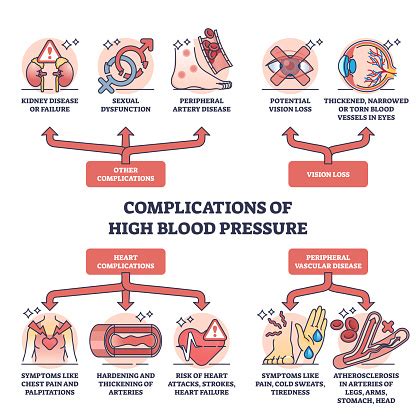
In conclusion, high blood pressure during pregnancy is a serious condition that requires prompt attention and management. By understanding the causes, symptoms, and management strategies, pregnant women can take proactive steps to prevent and manage hypertension. Regular prenatal care, lifestyle changes, and medication can help reduce the risks associated with high blood pressure, ensuring a healthy pregnancy and a positive outcome for both the mother and the baby.
As we conclude our discussion on pregnancy high blood pressure risks, it is essential to remember that every pregnancy is unique, and the risks associated with hypertension can vary from woman to woman. By staying informed and taking proactive steps to manage high blood pressure, pregnant women can reduce their risks and ensure a healthy pregnancy.
What are the symptoms of high blood pressure during pregnancy?
+The symptoms of high blood pressure during pregnancy can be subtle and may include headaches, dizziness, nausea and vomiting, vision changes, and abdominal pain.
How can I manage high blood pressure during pregnancy?
+Managing high blood pressure during pregnancy requires a comprehensive approach that involves lifestyle changes, medication, and regular monitoring. This may include maintaining a healthy weight, engaging in regular physical activity, eating a balanced diet, managing stress, and getting enough sleep.
What are the potential complications of high blood pressure during pregnancy?
+The potential complications of high blood pressure during pregnancy include preeclampsia, eclampsia, placental abruption, premature birth, and low birth weight.
We hope this article has provided you with valuable information on pregnancy high blood pressure risks. If you have any further questions or concerns, please do not hesitate to comment below. Share this article with your friends and family to help raise awareness about the importance of managing high blood pressure during pregnancy. Together, we can work towards ensuring a healthy pregnancy and a positive outcome for both the mother and the baby.
